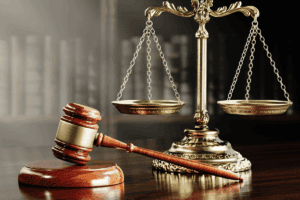The current Steinhoff saga is set to become the biggest business news story of the year.

The current Steinhoff saga is set to become the biggest business news story of the year. It culminated in massive value destruction for investors who thought they were invested in a very well-managed company. It also damaged the integrity of several very respected business leaders, and if social media is an indication, the integrity of corporate South Africa.
What is extraordinary to me is that fraud of this magnitude (if it occurred) could take place in a company with a board comprised of vastly experienced, respected and accounting-savvy members. There are no fewer than six CAs on the board and virtually all the directors have been in executive roles at various companies.
Apart from Markus Jooste and Christo Wiese, the board is littered with exceptional leaders. Dr Johan van Zyl, Dr Theunie Lategan and Dr Steve Booysen were the CEOs of Sanlam, FirstRand Africa & Emerging Markets, and Absa respectively. Dr Len Konar is on the King Committee on Corporate Governance and chairman of the External Audit Committee of the IMF.
In fact, until this week at least, Steinhoff would have been on most fund managers’ lists for companies with the strongest boards. The quality of the board made Steinhoff a more attractive investment.
The Steinhoff board consists of:
- Markus Jooste, BAcc, CA(SA)
- Ben la Grange, BCom (Law), CA(SA)
- Dr Steve Booysen, BCompt (Hons) (Accounting), MCompt, DCom (Accounting), CA(SA)(Former CEO of Absa)
- Claas Daun (BAcc, CA)
- Thierry Louis Joseph Guibert, MBA (FR) (Former auditor at KPMG)
- Dr Len Konar, BCom, MAS, DCom, CA(SA), CRMA (He is also a member of the King Committee on Corporate Governance and chairman of the External Audit Committee of the IMF.)
- Angela Kruger-Steinhoff BCom (Economic Science)
- Dr Theunie Lategan BAcc (Hons), MCompt, DCom (Accounting), CA(SA), Advanced Diploma Banking Law (He is also a former CEO of FNB Corporate Banking and FirstRand Africa and Emerging Markets)
- Heather Sonn BA (Political Science), MSc (International Business)
- Bruno Steinhoff
- Dr Johan van Zyl, BSc (Agricultural Science), BSc (Hons) (Agric) (cum laude), MSc (Agric ) (cum laude), DSc (Agric), PhD (Economics). (He is a former CEO of Sanlam)
- Dr Christo Wiese: Chairman. BA, LLB, DCom (hc)
- Jacob Wiese, BA (Stellenbosch), MA (Stellenbosch), International Economics & Management (Universita Commerciale Luigi Bocconi, Italy), LLB (UCT)
The question is therefore, how did alleged fraud amounting to R100 billion take place on this board’s watch? An even more pertinent question is why did the board not react proactively since the first allegations of transgressions surfaced in 2015?
Some may argue that it is interesting that only Markus Jooste resigned from the board. What about other board members, and especially the audit committee which Booysen chairs?
A board is ultimately responsible for the affairs of a company and in this case, there has to be “aggressive accountability”.
In a broader context, South Africa’s corporate governance credentials have been severely tarnished in recent months. If it comes out in the wash that fraud took place, Steinhoff will stand with a growing list of private sector and state-owned enterprise firms that have lost their moral compass. The well-known culprits are those linked to state capture such as KPMG, McKinsey, Bell Pottinger and SAP. Serious allegations against Naspers and MultiChoicesuggest they could be added to the list.
The outcome of the PwC investigation is therefore critical and hopefully the resultant report will be made public, warts and all.
The private sector has always portrayed itself as a beacon of good corporate governance, but these latest developments show that there are not only corporate governance challenges in government.
Brought to you by Moneyweb






